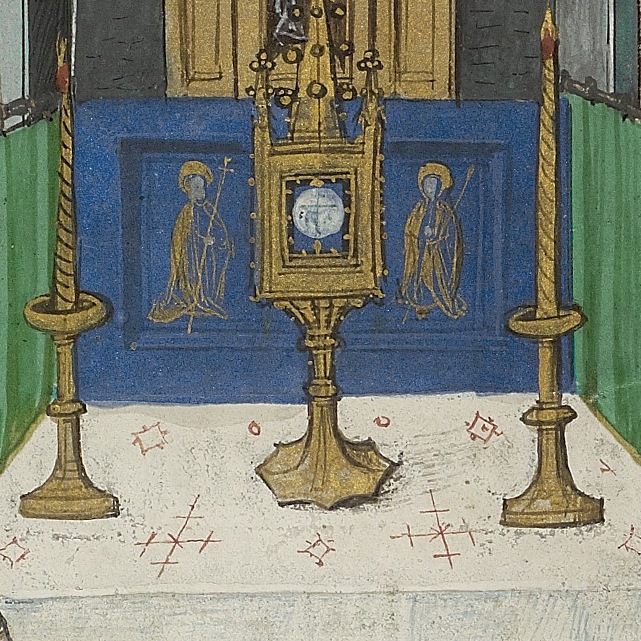I’ve been reading the bread of life discourse (John 6) for the last week as part of my morning prayers and was happily surprised to see this week’s daily readings are from this same passage. The bread of life discourse is amazing and shocking, but it is an essential teaching in our faith. It is so essential, Jesus was willing to let all of his disciples leave Him over this teaching. That is how important the Eucharist is.
Jesus commands that we must eat His body. The Jews interpret this literally and are repulsed by the idea. Jesus could have corrected them and clarified that He was speaking symbolically, but He doesn’t. When He hears the crowd quarreling, He reinforces the command, starting with “Amen Amen.” He then repeats His command and adds that they must drink His blood. He repeats this four times in four verses.
The crowd is really upset over this. Jesus is speaking to His disciples, people who left their lives to follow Jesus. They can’t accept the Eucharist, and Jesus just pushes the command harder. He does back down or soften it.
That brings us to the verse that really stood out for me this morning. Jesus says:
“Does this shock you? What if you were to see the Son of Man ascending to where he was before? It is the spirit that gives life, while the flesh is of no avail. The words I have spoken to you are spirit and life. But there are some of you who do not believe.”
Jesus is offering proof for His claim that He is from God and is God. What if we were to see Him ascend into heaven? At the time, that was a crazy way to prove His point. He didn’t ascend to heaven right then. That wouldn’t happen for roughly another 14 months (the bread of life discourse was given at Passover a year before His Passion and Resurrection). Despite that, He uses the ascension as His proof of His divinity and proof that we must trust His teaching on the Eucharist.
Today, we know of the Ascension as history. It happened. Jesus was arrested, tortured, crucified and died. He was executed in the most brutal way and He died. Then the impossible happened. He rose! For forty days He walked the earth and appeared to hundreds of people. At the end of forty days, He ascended to where He was before.
The Apostles at the bread of life discourse could not possibly have understood what Jesus was teaching. It would take a lot more instruction for them to comprehend what Jesus was doing. A year later, they received the Eucharist for the first time at the Last Supper. On Easter Sunday, Jesus gives the Eucharist to disciples in Emmaus after breaking open the Scriptures. After forty days, Jesus ascends. He then sends the Holy Spirit on Pentecost and the Apostles take to the streets to preach the Good News.
From that moment, that first Pentecost, the Church has held the Eucharist at the core of our faith. We see this in Acts 2:42: “They devoted themselves to the teaching of the apostles and to the communal life, to the breaking of the bread and to the prayers.” The Eucharistic celebration, with the teaching of the Apostles (and their successors – our priests and bishops teaching in the homily), the communal life (our gathering in the Mass), the breaking of the bread (the Eucharist) and the prayers (the Mass is a great act of prayer), has been the core of the Church from that first Pentecost until today.
So, as you contemplate the Blessed Sacrament, you may wonder if it is really the body, blood, soul and divinity of Jesus, or if it is just bread and wine. At those times, remember Jesus’ words, “What if you were to see the Son of Man ascending to where he was before?”
